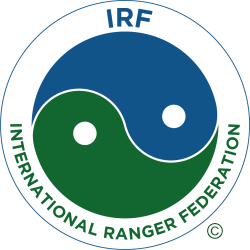Origins
The International Ranger Federation (IRF) was founded on 31 July 1992 in the Peak District National Park in the UK. An agreement was signed between the Countryside Management Association (CMA), representing rangers in England and Wales, the Scottish Countryside Rangers Association (SCRA) and the U.S. Association of National Park Rangers (ANPR).
The goals of the original agreement were to provide:
- A global forum for rangers around the world to share their successes and best practice in protecting the world’s natural, historic and cultural heritage
- To promote the exchange of information and technology from countries in which protected area management enjoys broad public and government support, to countries in which it is less supported
Mission and Objectives
The IRF is a federation of Ranger associations. The IRF’s mission is to develop, advance and promote throughout the world community, the Ranger profession and its critical role in conservation of natural and culural resources. The IRF objectives are set out in the Association’s Bylaws, as:
- Further the professional standards of Rangers throughout the world, including by facilitating training for Rangers through a variety of forums for communication, sharing and learning;
- Promote and support Rangers throughout the world and create a global network of Rangers;
- Develop and disseminate examples of ‘best practice’ and lessons learned’ in Ranger work to all who will benefit;
- Encourage and assist with the establishment of Ranger associations in countries not currently associated with the Company both to increase the representational capacity of the Company but also to nurture the common bond of Rangers throughout the world;
- Advance the aims of Rangers through collaborative partnerships with appropriate organisations;
- Establish global communications among Ranger organisations and conservation organisations;
- Foster professional exchanges among Rangers and twinning agreements between member associations;
- Arrange and conduct Full international meetings to discuss, promote and support the work of Rangers;
- Undertake joint activities to directly support each other’s operations where necessary and feasible;
- Collaborating with third parties to further the mission and vision of the Company;
- Promote world community awareness and understanding of the role, values and benefits of Rangers in the conservation of natural and cultural resources; and
- Undertake and or do all such things or activities which are necessary, incidental or conducive to the advancement of these Objects.
